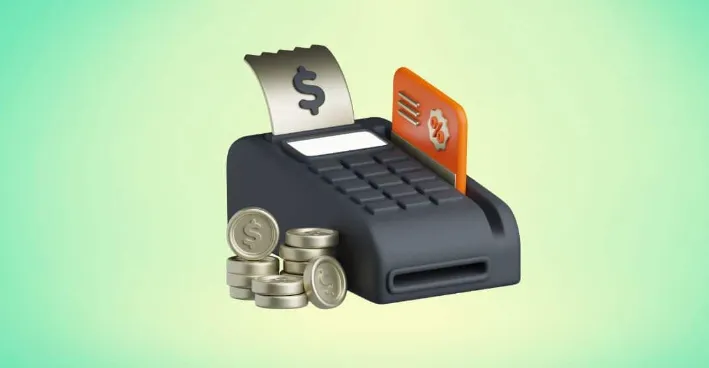The Role of Payment Processors in Data Security

Contents
- 1 Introduction to Payment Processors
- 2 How Payment Processors Protect Data
- 3 Common Security Measures Implemented by Payment Processors
- 4 The Importance of Compliance and Certification for Payment Processors
- 5 Risks to Data Security in Payment Processing
- 6 Steps to Take When Choosing a Payment Processor with Strong Data Security
- 7 Conclusion: Ensuring Safe Transactions and Protecting Sensitive Information
Introduction to Payment Processors
Welcome to the world of secure online transactions! Payment processors play a vital role in ensuring that your sensitive data remains protected during every purchase you make. Have you ever wondered how these financial guardians safeguard your information? Let’s delve into the realm of payment processors and explore their crucial role in maintaining data security.
How Payment Processors Protect Data
When it comes to protecting data in the world of payment processing, payment processors play a crucial role. These entities act as intermediaries between merchants and banks, ensuring that sensitive information is handled securely throughout transactions.
Payment processors utilize advanced encryption technologies to safeguard data during transmission. This means that when you make a purchase online or swipe your card at a physical store, your information is encrypted to prevent unauthorized access.
Moreover, tokenization is another key method used by payment processors. This process replaces actual card details with unique tokens, adding an extra layer of security and reducing the risk of fraud.
Additionally, many payment processors employ strict compliance measures such as PCI DSS (Payment Card Industry Data Security Standard) certification. This ensures that they adhere to industry best practices for maintaining data security.
By implementing these robust security measures, payment processors help create a secure environment for transactions while instilling trust among consumers regarding the safety of their personal and financial information.
Common Security Measures Implemented by Payment Processors
Payment processors play a crucial role in safeguarding sensitive data during online transactions. To ensure the security of payment information, these service providers implement various common security measures. One of the primary methods used is encryption, which involves encoding data to prevent unauthorized access by cybercriminals.
Tokenization is another key security measure adopted by payment processors. This process replaces sensitive cardholder information with unique tokens, reducing the risk of data breaches. Additionally, robust firewalls are put in place to block any unauthorized attempts to access payment data.
Multi-factor authentication adds an extra layer of protection by requiring users to verify their identity through multiple steps before completing a transaction. Regular monitoring and auditing help detect any suspicious activities or potential threats promptly.
By implementing these security measures and staying up-to-date with industry best practices, payment processors can effectively protect sensitive financial information from falling into the wrong hands.
The Importance of Compliance and Certification for Payment Processors
When it comes to payment processors, compliance and certification play a crucial role in ensuring data security. These standards are put in place to protect sensitive information and prevent fraudulent activities. Payment processors that adhere to industry regulations demonstrate their commitment to maintaining the highest security standards for transactions.
Compliance with regulations like PCI DSS (Payment Card Industry Data Security Standard) is essential for payment processors to safeguard cardholder data. Certification validates that a payment processor has met specific requirements set forth by regulatory bodies, assuring merchants and customers of secure transactions.
By obtaining certifications such as PCI DSS compliance, payment processors not only enhance their reputation but also build trust with both merchants and consumers. Compliance and certification reassure stakeholders that their data is being handled securely throughout the transaction process.
Risks to Data Security in Payment Processing
When it comes to payment processing, data security is a top priority for businesses and consumers alike. However, there are inherent risks involved that can compromise sensitive information if not adequately addressed.
One major risk in payment processing is the potential for data breaches. Hackers are constantly evolving their tactics to gain unauthorized access to payment systems and steal valuable customer data.
Phishing attacks also pose a significant threat to data security in payment processing. Fraudsters may use deceptive emails or websites to trick individuals into providing confidential information such as credit card details.
Another risk factor is the use of outdated or insecure technology by merchants or payment processors. Failure to regularly update software and implement robust security measures can leave vulnerabilities open for exploitation.
Additionally, human error within organizations handling payments can lead to inadvertent exposure of sensitive data. Training employees on best practices for handling customer information is crucial in mitigating this risk.
Steps to Take When Choosing a Payment Processor with Strong Data Security
When it comes to choosing a payment processor with strong data security, there are several key steps you can take to ensure the safety of your transactions and sensitive information.
Research different payment processors to compare their security features and certifications. Look for providers that comply with industry standards like PCI DSS compliance.
Next, consider the encryption methods used by each payment processor to protect data during transmission. Strong encryption is crucial in safeguarding customer information.
Additionally, evaluate the fraud detection tools and monitoring systems offered by potential payment processors. These tools can help detect suspicious activities and prevent fraudulent transactions.
It’s also important to review the provider’s track record in handling data breaches and how they have responded to such incidents in the past.
Don’t forget to read reviews and testimonials from other merchants who have used the payment processor. Their experiences can provide valuable insights into the level of data security offered by the provider you’re considering.
By taking these steps when choosing a payment processor, you can make an informed decision that prioritizes data security for your business and customers.
Conclusion: Ensuring Safe Transactions and Protecting Sensitive Information
By choosing a payment processor with strong data security measures in place, businesses can ensure safe transactions and protect sensitive information. It is crucial to prioritize data security when selecting a merchant service provider or credit card processor. By understanding the risks involved and taking proactive steps to mitigate them, companies can safeguard their customers’ data and build trust in their brand.
Remember that compliance with industry standards and certifications is essential for maintaining data security. Stay informed about the latest developments in payment processing security to stay ahead of potential threats. By partnering with reputable payment processors who prioritize data protection, businesses can minimize risks and focus on growing their operations.
Investing in robust data security measures not only protects your business but also enhances customer confidence. Prioritizing secure transactions benefits both merchants and consumers by creating a safe environment for financial interactions online. Choose your payment processor wisely to ensure smooth transactions while safeguarding sensitive information from cyber threats.


